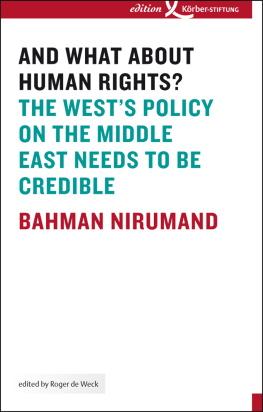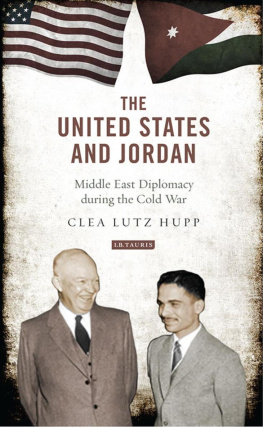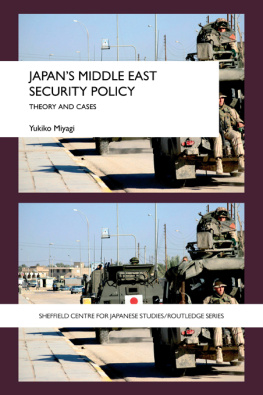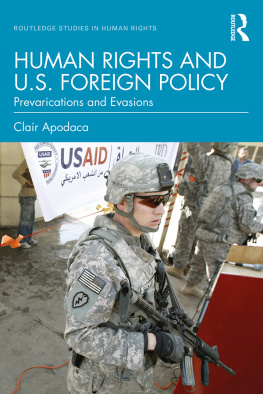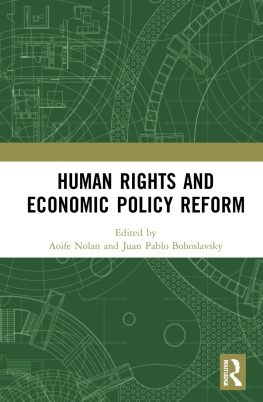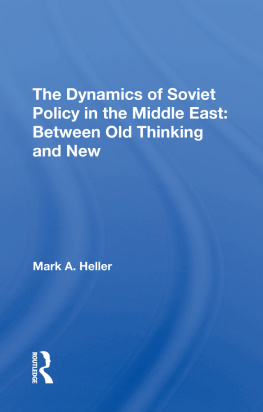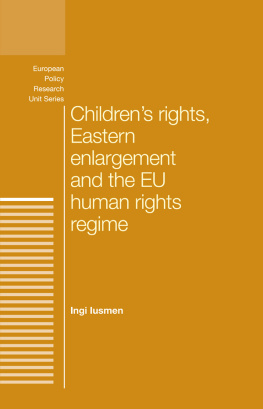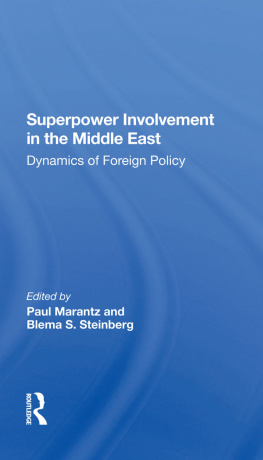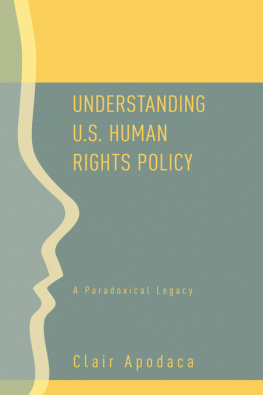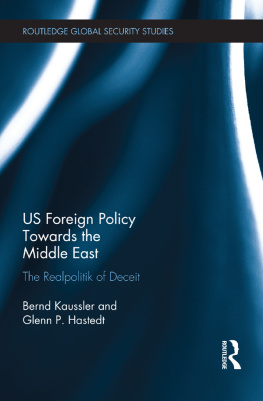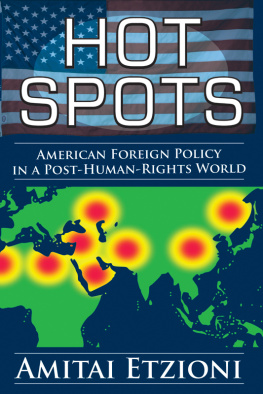And what about Human Rights?
The Wests Policy on the Middle East Needs to Be Credible
Bahman Nirumand
Translated by Alfred Clayton
Preface
A Few Facts and Certain Values
Let us look briefly at the terrible things that have been perpetrated by the Christian world in the West and the Muslim world in the East. The author compares the wars and massacres that have occurred in the 20th and 21st centuries, and comes to the conclusion that the result is not very flattering for the West, the supposedly civilized world, even if Muslims were not entirely blameless. Two world wars, the Holocaust, the support given to Latin American and Arab tyrants, the coup against Mossadegh, an Iranian democrat, the apartheid system, the wars in Vietnam, Afghanistan and Iraq, the bloodbath on the Balkans, and a host of other conflicts, not to mention the carnage committed by the colonialists were not the fault of Muslims. Oddly enough most of the barbarity emanated from that part of humanity which derives its ideas from the American and French revolutions, and from the notion that all human beings are born free and equal in dignity and rights. It should not be forgotten that in 1789 the French National Constituent Assembly debated at length about whether or not this also applied to slaves overseas.
The West (inasmuch as it still exists as a single entity) tends to forget that as a result of the recent past its power is far greater than its credibility. It is rather ambivalent, and has at one and the same time unusual skills and some alarming weaknesses. On the one hand Europe has learned its lesson from crimes committed in the past. Bahman Nirumand maintains that this has been demonstrated by the fundamental transformation of Germany and the establishment of the European Union as a model of peace, freedom and human rights. On the other hand, although the West is given to harping on about its values, it simply ignores them whenever realpolitik comes into play or tramples them under foot when it seems opportune to do so. We are not separated by religions or civilizations. We are separated by facts facts that are humiliating, demeaning and degrading, facts that have left deep scars and nourished feelings of anger, hatred and revenge.
One does not have to agree with everything the author says, but one should be grateful that he has said it. The Western worlds willingness to criticize itself and to become more mature in the process is on the wane. After 1968 Western self-criticism turned into an intense kind of ritual. Many people thought it was no more than self-hatred, and turned a deaf ear to what was being said. However, it is now needed more than ever, not as a mantra, but, in a globalized world, as a prerequisite for a successful type of foreign policy. It is of especial importance in the case of Islamic countries, whose political development (and in this it resembles the first democratic stirrings in the West) seems to be pursuing confused and convoluted paths. Those who know that their credibility has certain limits will no doubt be prepared to listen to Nirumand, who believes that one should not break off relations with dictatorships. They should be reshaped so that we are more firmly on the side of the oppressed and can encourage the work of their civil societies. For example, there should be more education and training, and by the same token fewer arms deals. In this way Europe can regain lost trust.
Roger de Weck
Editor of series Standpunkte
The Dignity of Man is Inviolable
The dignity of man is inviolable. To respect and protect it is the duty of all state authority. The German people therefore acknowledge inviolable and inalienable human rights to be the basis of every community, of peace and of justice in the world. This is the wording of Article 1 of the Basic Law of the Federal Republic of Germany. And the Preamble to the Declaration of Independence of the United States of America adopted in 1776 states: We hold these truths to be self-evident, that all men are created equal, that they are endowed by their Creator with certain unalienable Rights, that among these are Life, Liberty and the pursuit of Happiness. The French Revolution adopted the slogan Liberty, equality, and fraternity, and in 1789 promulgated the Declaration of the Rights of Man and the Citizen. It included a sweeping statement that was deemed to be universally valid: Men are born and remain free and equal in rights .
The views expressed and enshrined in these three quotations, that is, the recognition of the fact that the dignity of man is inviolable and that irrespective of their origins, their race, their faith and their gender people are equal solely because they are human beings are some of the most remarkable achievements in the long history of mankind. It is something that the West has a right to be proud of. Acceptance of the fact that there is such a thing as human rights made it possible for more people than ever before to make the best of their talents, helped learning and the arts to flourish, and, last but not least, led to democracy, the best form of government that has ever existed. It aspires to defend the cause of freedom and social justice and to safeguard individual rights. Nearly 200 years separate the American Declaration of Independence and the Basic Law of the Federal Republic of Germany adopted in 1949, and in Europe they included the Age of Enlightenment. On the one hand this era witnessed an unrelenting determination to support the cause of human rights. On the other hand, these ideals were sometimes simply brushed to one side, even when it came to ones own nation, and this led to a great deal of misery. Thus as far as the indigenous inhabitants of the North American continent were concerned, the foundation of the United States of America meant servitude, suffering, and an untold number of deaths. It was a society founded by European emigrants in which people with dark and black skins were enslaved, discriminated against, and subjected to exclusion simply because they had few or no rights. In Europe racial insanity was rampant until a few decades ago, reaching a climax in the first half of the last century, when six million Jews were murdered, not to mention Sinti and Roma, and members of many other ethnic groups.
The Europeans in particular were rightly proud of their belief in democracy and human rights, but this did not stop them from plundering and exploiting distant regions and turning them into colonies. In the West the spoils formed the basis of a unique economic upsurge, and they enabled people to accumulate capital. They also made it possible to set up structures and dependencies with which Western states were able to bring the whole world under their control for several centuries. And even after the oppressed nations had begun to resist and had become independent, the looting continued, albeit with other means. This historical suffering not only forms the backdrop to and is at the heart of the most important conflicts on our planet. It is one of the most important reasons for violence and responsive violence, for rebellions and revolutions, and for terrorism.
The Battle of the Century
Let us turn our minds back to 9/11. It was all rather eerie, like a never-ending nightmare. The whole terrifying sequence of events, the flames leaping up into the sky, the terrible sight of people jumping from windows and plunging to their deaths, and finally the two towers collapsing like a pack of cards these are images which will probably never be erased from our minds.
The attacks on the World Trade Center in New York and the Pentagon in Washington were unparalleled acts of terrorism directed against symbols of wealth and power. From the start and that was the unusual thing about it the assailants knew that thousands of people were going to die. It was quite unbelievable.


